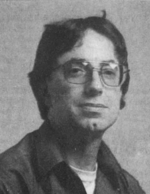 Tom Brown/The Hartford Courant. October 5, 2003. Peter Reilly was convicted of first-degree manslaughter for killing his mother in Litchfield County, Connecticut, in 1974 based on his confession after 24 hours of police interrogation. Always maintaining that the police had coerced his confession, Reilly was exonerated two years later following the discovery of exculpatory evidence. On the evening of September 28, 1973, 51-year-old Barbara Gibbons was found dead in the bedroom of her home in Falls Village, Connecticut. Her son, 18-year-old Peter Reilly, reported that he had discovered her body when he arrived home from a teen center church meeting shortly before 10:00 p.m. She had been stabbed to death. He placed five telephone calls for help. Reilly and his friend, Geoffrey Madow, were the only people on the scene when the police arrived. Reilly quickly became a suspect because of his presence at the scene and his lack of emotion immediately following the incident. He was held at the police station overnight, subjected to an interrogation, and took a voluntary polygraph test, all without the presence of an attorney, hoping that it would demonstrate his innocence. Nearly 24 hours after the murder, Reilly confessed. Although later transcripts of his interrogation revealed that he was not physically threatened, Reilly became increasingly confused as the questioning progressed. At his pre-trial hearing in February 1974, Judge Arthur Armentano ruled that his confession could be submitted as evidence. While awaiting trial, friends and supporters rallied around Reilly, coming together to post his $50,000 bond, and Reilly returned to finish his senior year of high school. Nevertheless, on April 12, 1974, Reilly was convicted of first-degree manslaughter and sentenced in late May to a term of six to sixteen years in prison. During the summer of 1974, playwright Arthur Miller and other notables took interest in Reilly’s case and donated money to his appeal. Private investigator Jim Conway became an ardent defender of Reilly, and he convinced attorney Roy Daly to represent Reilly at minimal cost. In March 1976, Judge John A. Speziale of the Superior Court of Connecticut, granted Reilly a new trial on the basis of newly discovered evidence. A fingerprint found on the door of the Gibbons home cast suspicion on brothers Timothy and Michael Parmalee, who had a history of conflict with the victim. An auxiliary state trooper and his wife testified that they had seen Reilly driving his car at the time of his mother’s murder, corroborating Reilly’s account of his activities. The information, found in the files of the original prosecutor by his successor, and withheld from the defense, confirmed that Reilly had no time to kill his mother and dispose of all evidence before the police arrived. On November 24, 1976, the charges against Reilly were dismissed. On June 1, 1977, Superior Court Judge Maurice J. Sponzo ruled that Reilly had been the victim of questionable police and prosecutorial tactics. In addition to critiquing the state police and the Connecticut criminal justice system, Sponzo held that Reilly’s atypical behavior following the incident and his failure to display expected emotions contributed to his conviction. After his exoneration, Reilly became an advocate for the reform of police interrogation methods.
In 1978, Reilly filed a $2 million lawsuit in federal court in which he claimed that certain state police officials had continued to claim he had killed his mother, notwithstanding the fact that he had been cleared by a grand jury. The suit was dismissed.
– Researched by Carling Spelhaug
|